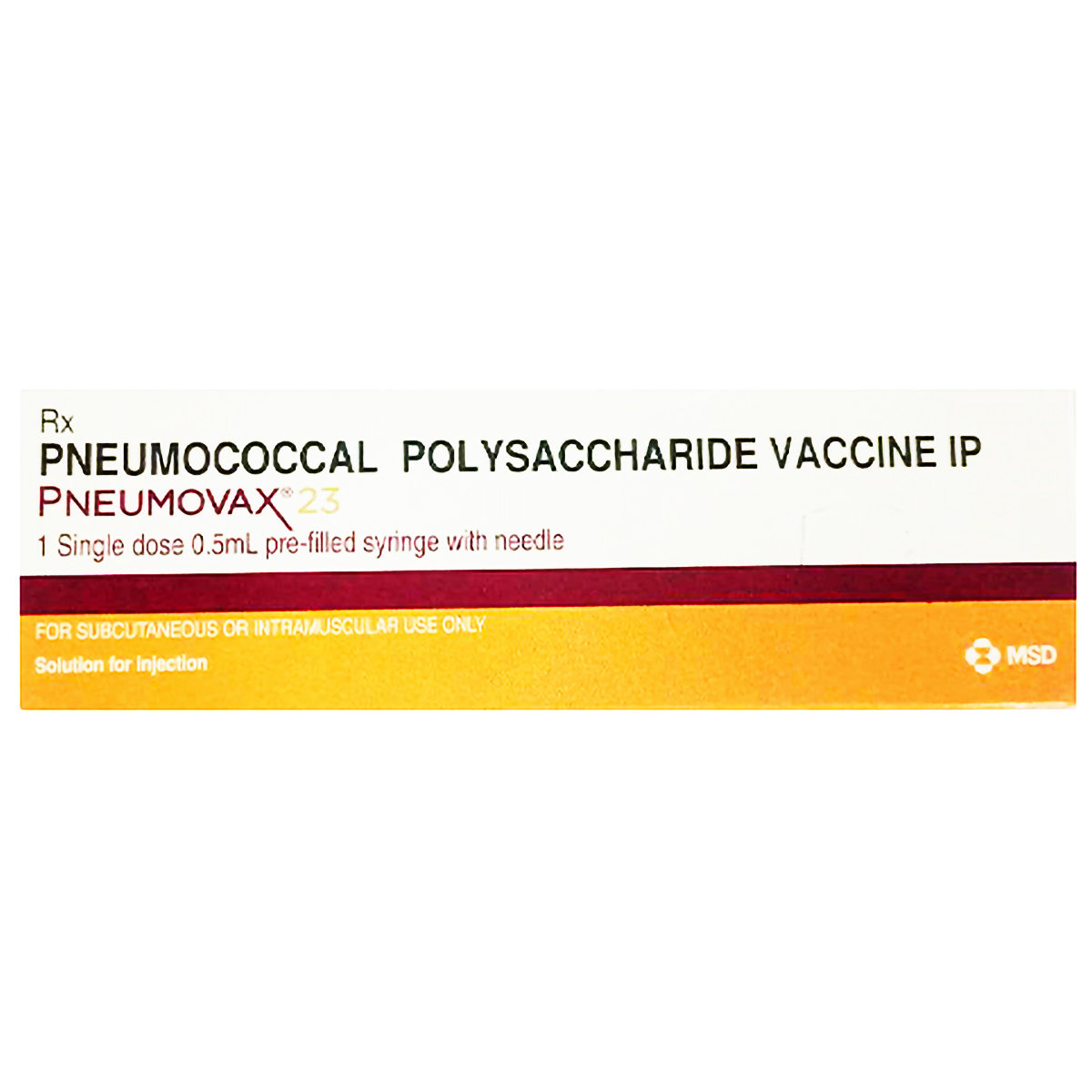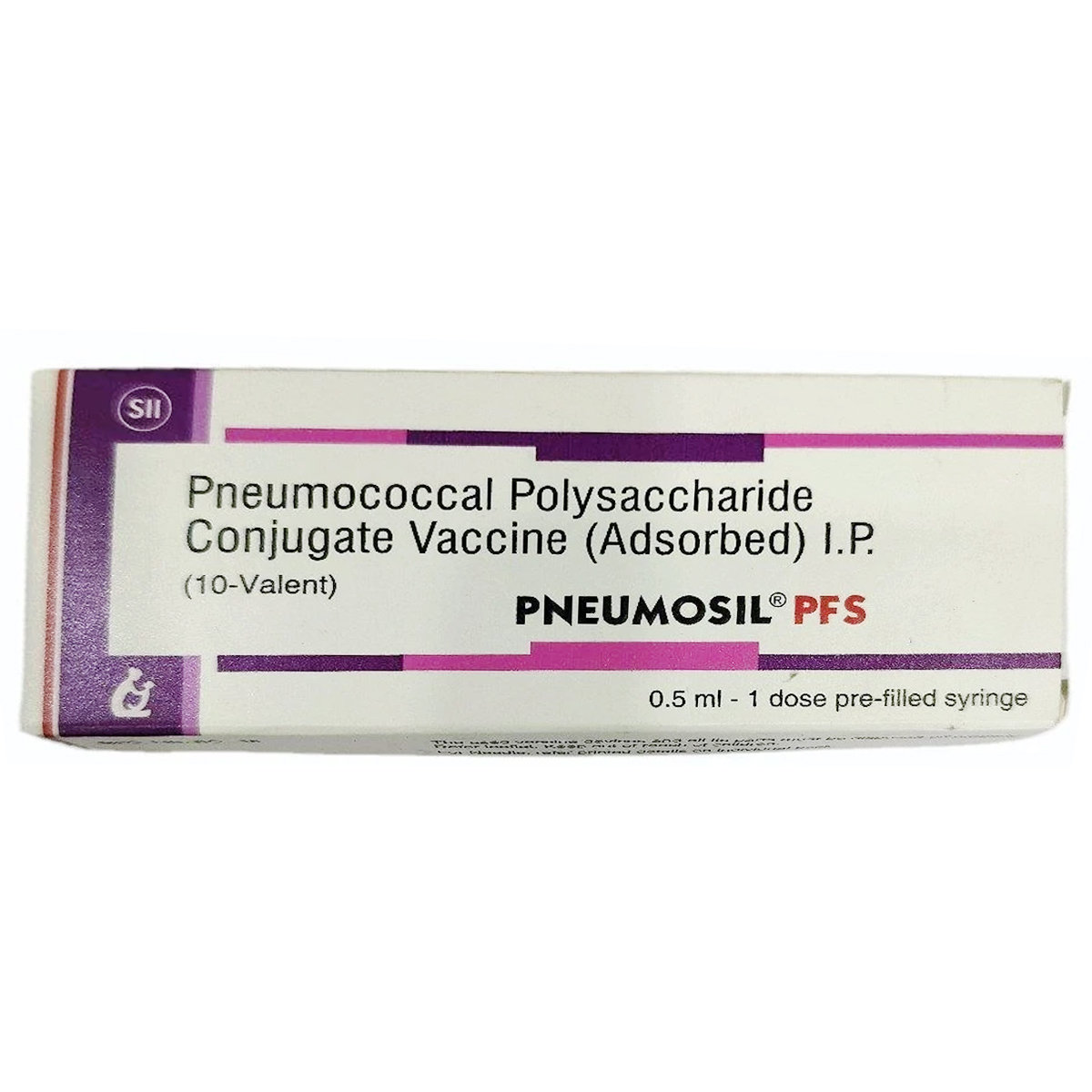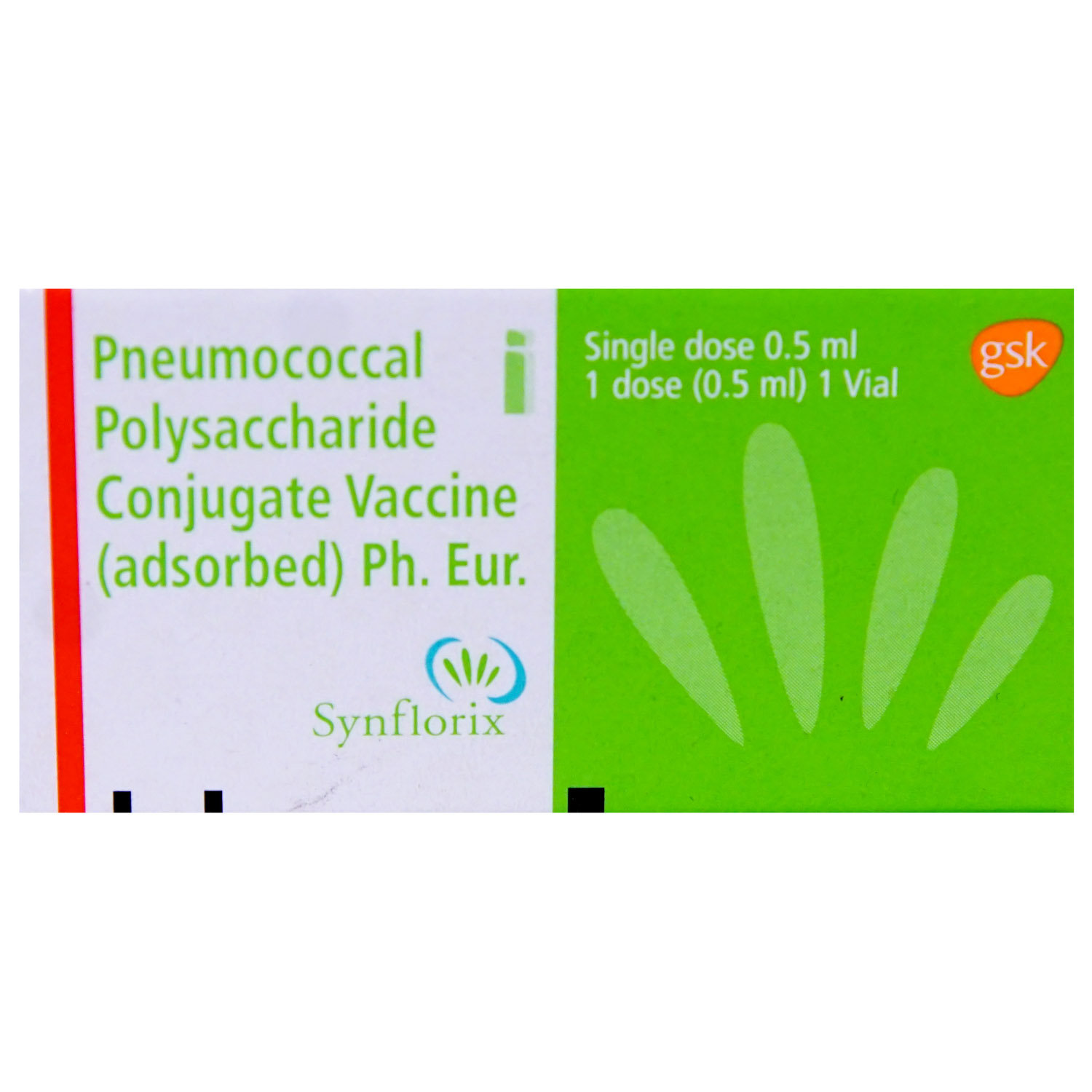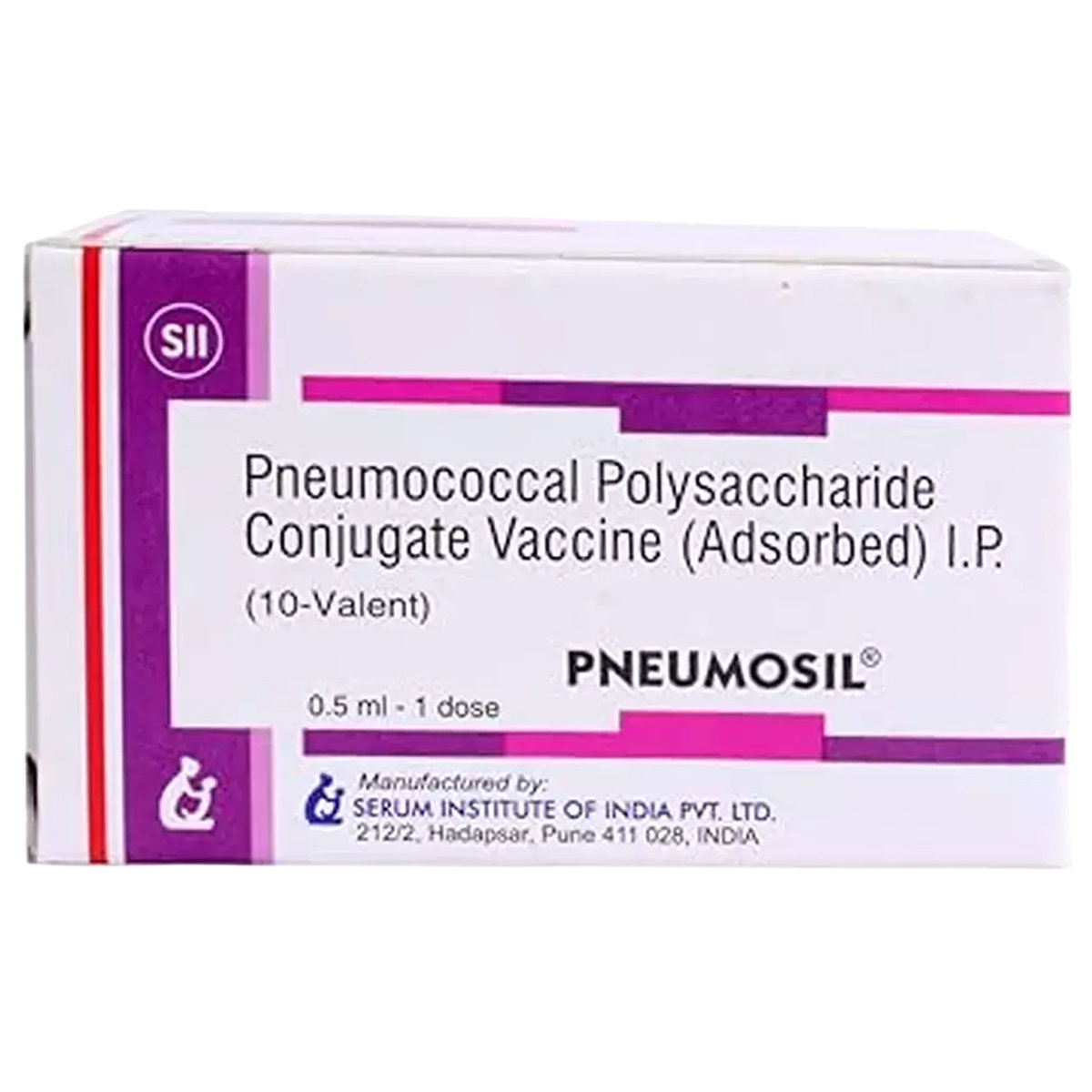Pneumococcal Polysaccharide Vaccine
About Pneumococcal Polysaccharide Vaccine
Pneumococcal Polysaccharide Vaccine belongs to a class of medicines known as immunizing agents primarily used to treat pneumococcal infections. It protects against diseases such as sepsis or bacteraemia (bacteria in the bloodstream), meningitis (inflammation around the brain), ear infections, pneumonia (lung infection). Pneumococcal infection is caused by Streptococcus pneumoniae bacteria.
Pneumococcal Polysaccharide Vaccine contains Pneumococcal polysaccharide vaccine which helps to develop immunity by starting a mild infection. This kind of infection does not produce disease but stimulates the body's immune system to make antibodies (proteins) to prevent any upcoming infections.
Pneumococcal Polysaccharide Vaccine will be administered by a healthcare professional. Do not self administer it. In some cases, you may experience some common side effects like fever, injection site redness, rashes, decreased appetite, irritation, vomiting, and diarrhoea. Most of these side effects of Pneumococcal Polysaccharide Vaccine do not require medical attention and gradually resolve over time. However, if the side effects persist or worsen, please consult your doctor.
Inform your doctor if you are allergic to any of the components. Pneumococcal Polysaccharide Vaccine should not be taken in conditions like severe infections with high temperatures. If you are pregnant or a nursing mother, it is advised to consult a doctor before using Pneumococcal Polysaccharide Vaccine. Pneumococcal Polysaccharide Vaccine can be safely given to the children if prescribed by your doctor. Keep your doctor informed about your health condition and medications to rule out any interactions.
Uses of Pneumococcal Polysaccharide Vaccine
Medicinal Benefits
Pneumococcal Polysaccharide Vaccine is primarily used to treat pneumococcal infections like an infection in the lungs, brains, blood and inner ear. It helps to develop immunity by starting a mild infection. This kind of condition does not produce disease but stimulates the body's immune system to make antibodies (proteins) to prevent any upcoming infections. This vaccine is used to treat adults and children against infectious illnesses.
Directions for Use
- Follow your doctor's instructions regarding doses and timing of Pneumococcal Polysaccharide Vaccine for optimal results.
- Pneumococcal Polysaccharide Vaccine will be administered by a healthcare professional.
- Kindly do not self-administer.
Storage
Side Effects of Pneumococcal Polysaccharide Vaccine
- Fever
- Injection site redness
- Rashes
- Decreased appetite
- Irritation
- Vomiting
- Diarrhoea
Drug Warnings
Inform your doctor if you are allergic to any of the components. Consult your doctor if you have a severe infection with high fever, bleeding problems, weak immune system, or seizures. Pneumococcal Polysaccharide Vaccine may cause fever, talk to your doctor if it does not go away or if the fever crosses 102°F. If you are pregnant or a nursing mother, it is advised to consult a doctor before using Pneumococcal Polysaccharide Vaccine. Pneumococcal Polysaccharide Vaccine can be safely given to the children above 6weeks if prescribed by your doctor.
Drug Interactions
Drug-Drug Interactions: Pneumococcal Polysaccharide Vaccine may have interaction with medicines used to decrease the immune system (sirolimus, tacrolimus, hydrocortisone), medicines used for psoriasis (betamethasone), and the medicines used for rheumatoid arthritis/inflammation in the joint (azathioprine, etanercept, leflunomide).
Drug-Food Interactions: No interactions found.
Drug-Disease Interactions: Pneumococcal Polysaccharide Vaccine should not be used in patients having severe infections with a high fever.
Drug-Drug Interactions Checker List:
Safety Advice

Alcohol
unsafeAlcohol may decrease the efficacy of the immune system. Alcohol consumption is the most important risk factor for pneumococcal infections. Therefore, avoid the consumption of alcohol.

Pregnancy
cautionPlease consult a doctor if you are pregnant or planning to be pregnant. Your doctor will prescribe only if the benefits overweigh the risks.

Breast Feeding
cautionPlease consult your doctor if you are breastfeeding. Your doctor will decide if Pneumococcal Polysaccharide Vaccine can be taken by a breastfeeding mother or not.

Driving
safe if prescribedPneumococcal Polysaccharide Vaccine has no or negligible influence on your ability to drive.

Liver
cautionPlease consult a doctor if you have any concerns regarding the usage of Pneumococcal Polysaccharide Vaccine in patients with liver problems.

Kidney
cautionPlease consult a doctor if you have any concerns regarding the usage of Pneumococcal Polysaccharide Vaccine in patients with kidney problems.

Children
cautionPneumococcal Polysaccharide Vaccine can be safely given to children above 6weeks when prescribed by a child specialist.
Habit Forming
Diet & Lifestyle Advise
- Eat foods like nuts, beans, seeds, white meat and cold-water fishes like salmon and sardines as they have anti-inflammatory properties.
- Avoid drinking alcohol as it decreases immunity.
- Eat citrus fruits like orange, kiwi, mandarin and lemon, as they enhance the immune system.
- Eat yoghurt as it decreases the growth of harmful gut bacteria. It also improves the immune system.
Patients Concern
Disease/Condition Glossary
Pneumococcal Disease: Pneumococcal disease is a severe infection caused by bacteria. It can cause pneumonia (inflammation in the lungs). Besides this, pneumococcal bacteria can infect the sinuses (small air pockets placed at the back of your forehead, cheekbones, nose and in between the eyes) and inner ear. It can also infect the blood, lungs and brain and these conditions can be serious.
FAQs
Pneumococcal Polysaccharide Vaccine belongs to a class of medicines known as immunizing agents primarily used to treat pneumococcal infections. It protects against diseases such as sepsis or bacteraemia (bacteria in the bloodstream), meningitis (inflammation around the brain), ear infections, pneumonia (lung infection).
Pneumococcal Polysaccharide Vaccine helps to develop immunity by starting a mild infection. This kind of infection does not produce disease but stimulates the body's immune system to make antibodies (proteins) to prevent any upcoming infections.
Yes, Pneumococcal Polysaccharide Vaccine can be given with influenza vaccine or other vaccines but at a different site with a different syringe. Most people are capable of preventing both infections by responding to both vaccines simultaneously.
If you have a minor condition like the common cold, then you can receive Pneumococcal Polysaccharide Vaccine. But, if you have a severe infection with a high fever or a few other long-lasting diseases, then Pneumococcal Polysaccharide Vaccine should be taken only after you recover. Please consult your doctor for more information.
No, Pneumococcal Polysaccharide Vaccine should not be given under the skin. It should be given as an intramuscular injection (through the muscles). It should be injected in the thigh muscles in infants or in the upper arm in children and adults by a health care practitioner.
Yes, Pneumococcal Polysaccharide Vaccine is safe. Infrequently, there may be minor pain and swelling at the injection site or mild fever, but these resolve gradually in a few days. If fever or discomfort continues, inform a doctor.
Available Medicines for
Pneumococcal Polysaccharide Vaccine
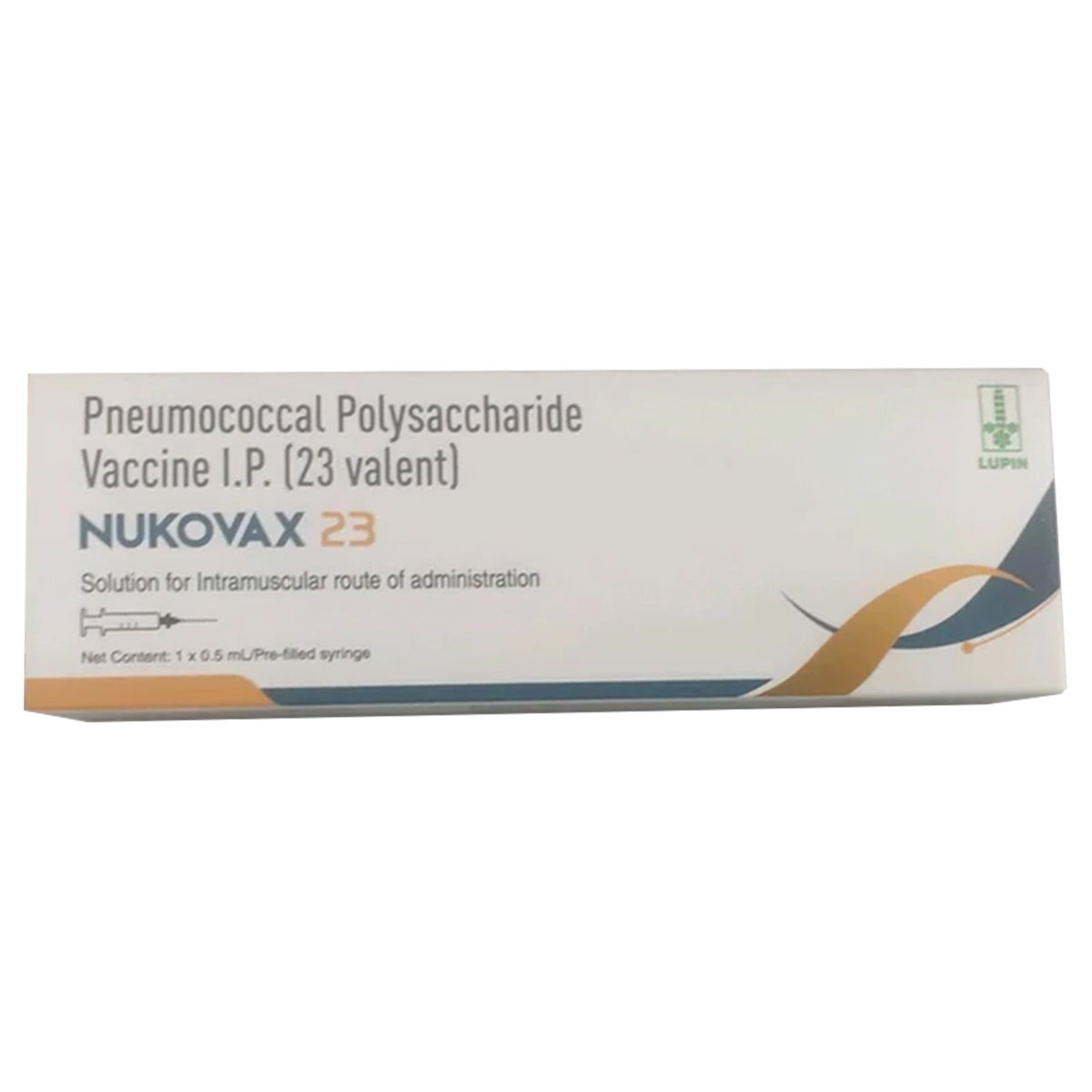
Nukovax 23 PFS Adult Vaccine Injection 0.5 ml
1 Prefilled Syringe
₹2115 (MRP 2350)10%Off
cashback: 0


